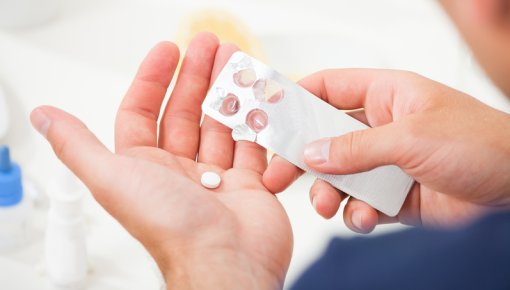Agency for Healthcare Research and Quality (AHRQ). Treatments for seasonal allergic rhinitis. 2013.
Carson S, Lee N, Thakurta S. Drug Class Review: Newer antihistamines. Final Report - Update 2. (Oregon Evidence-Based Practice Center). 2010.
Debbaneh PM, Bareiss AK, Wise SK et al. Intranasal Azelastine and Fluticasone as Combination Therapy for Allergic Rhinitis: Systematic Review and Meta-analysis. Otolaryngol Head Neck Surg 2019; 161(3): 412-418.
Feng S, Fan Y, Liang Z et al. Concomitant corticosteroid nasal spray plus antihistamine (oral or local spray) for the symptomatic management of allergic rhinitis. Eur Arch Otorhinolaryngol 2016; 273(11): 3477-3486.
Hoang MP, Chitsuthipakorn W, Seresirikachorn K et al. As-needed intranasal corticosteroid spray for allergic rhinitis: a systematic review and meta-analysis. Rhinology 2022; 60(4): 242-251.
Liu G, Zhou X, Chen J et al. Oral Antihistamines Alone vs in Combination with Leukotriene Receptor Antagonists for Allergic Rhinitis: A Meta-analysis. Otolaryngol Head Neck Surg 2018; 158(3): 450-458.
Miligkos M, Dakoutrou M, Statha E et al. Newer-generation antihistamines and the risk of adverse events in children: A systematic review. Pediatr Allergy Immunol 2021; 32(7): 1533-1558.
Seresirikachorn K, Chitsuthipakorn W, Kanjanawasee D et al. Effects of H1 antihistamine addition to intranasal corticosteroid for allergic rhinitis: a systematic review and meta-analysis. Int Forum Allergy Rhinol 2018; 8(10): 1083-1092.
Velentza L, Maridaki Z, Blana E et al. Antihistamines in the Management of Pediatric Allergic Rhinitis: A Systematic Review. Paediatr Drugs 2020; 22(6): 673-683.
Wei C. The efficacy and safety of H1-antihistamine versus Montelukast for allergic rhinitis: A systematic review and meta-analysis. Biomed Pharmacother 2016; 83: 989-997.
IQWiG health information is written with the aim of helping people understand the advantages and disadvantages of the main treatment options and health care services.
Because IQWiG is a German institute, some of the information provided here is specific to the German health care system. The suitability of any of the described options in an individual case can be determined by talking to a doctor. informedhealth.org can provide support for talks with doctors and other medical professionals, but cannot replace them. We do not offer individual consultations.
Our information is based on the results of good-quality studies. It is written by a team of health care professionals, scientists and editors, and reviewed by external experts. You can find a detailed description of how our health information is produced and updated in our methods.

